 Is OpenAI’s Canvas the ultimate tool for writers and coders, seamlessly blending human creativity with AI assistance? Can Microsoft’s Copilot, with its voice interaction and visual understanding, truly become an indispensable AI partner? Will ElevenLabs disrupt the audiobook industry and empower authors with AI-generated celebrity voices? Does WisprFlow hold the key to effortless content creation, transforming spoken words into polished text? And how will Google’s NotebookLM and its contextual chatbots redefine research and knowledge management? These are just a few of the questions raised by this week’s whirlwind of AI advancements, leaving us on the edge of our seats, wondering what groundbreaking innovations lie just beyond the horizon.
Is OpenAI’s Canvas the ultimate tool for writers and coders, seamlessly blending human creativity with AI assistance? Can Microsoft’s Copilot, with its voice interaction and visual understanding, truly become an indispensable AI partner? Will ElevenLabs disrupt the audiobook industry and empower authors with AI-generated celebrity voices? Does WisprFlow hold the key to effortless content creation, transforming spoken words into polished text? And how will Google’s NotebookLM and its contextual chatbots redefine research and knowledge management? These are just a few of the questions raised by this week’s whirlwind of AI advancements, leaving us on the edge of our seats, wondering what groundbreaking innovations lie just beyond the horizon.
This article is brought to you in partnership with Truetalks Community by Truecaller, a dynamic, interactive network that enhances communication safety and efficiency. https://community.truecaller.com
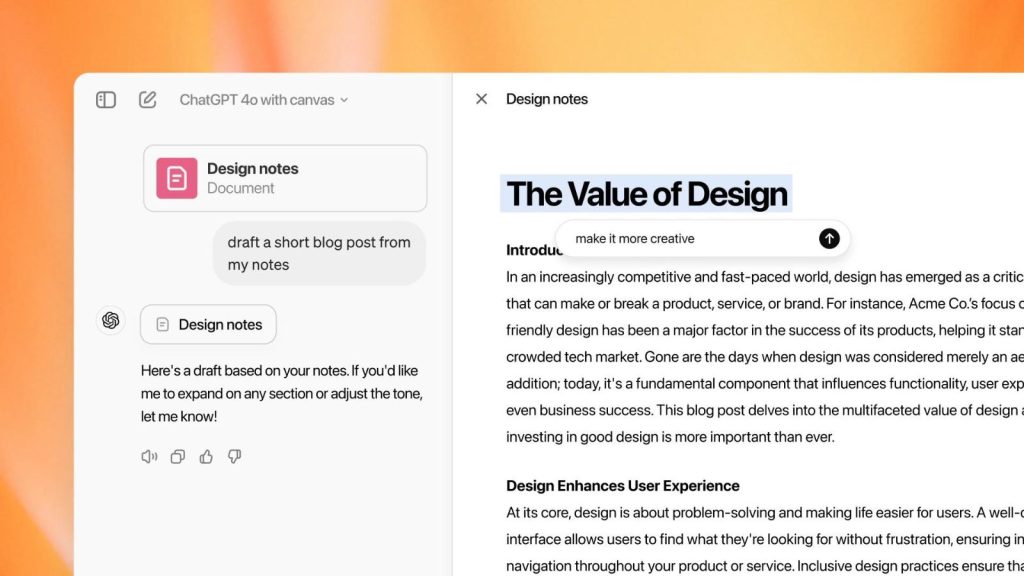 OpenAI’s Canvas: A New Era for Writing and Code Creation
OpenAI’s Canvas: A New Era for Writing and Code Creation
OpenAI has once again disrupted the creative landscape with Canvas, a groundbreaking new feature for ChatGPT that promises to revolutionize how we write and code. Launched just today, this early version of Canvas is available to Plus and Team subscribers and offers a new way to interact with ChatGPT, moving beyond simple chat and code interactions.But why is Canvas such a game-changer? It provides a dedicated workspace within ChatGPT that functions like a supercharged notebook. Users can choose between a traditional writing interface, reminiscent of a word processor, or a specialized coding environment. This allows for seamless brainstorming, drafting, and editing, all within a single, integrated platform.
Collaborative AI Assistant
Think of Canvas as a collaborative AI assistant that sits alongside you, offering intelligent suggestions and support. For writers, this means real-time feedback on grammar, style, and structure. Imagine having an editor constantly at your side, helping you refine your ideas and polish your prose.
For coders, Canvas offers a powerful suite of tools to streamline the development process. It can review code for errors, add logs and comments, fix bugs, and even port code to other languages like JavaScript and Python. This significantly reduces the time and effort required for debugging and code maintenance.
- Integrated Workspace: Combines writing and coding environments within ChatGPT.
- Real-time Collaboration: Provides instant feedback and suggestions for both writing and code.
- Enhanced Productivity: Streamlines workflows and reduces development time.
- Versatile Applications: Caters to a wide range of writing and coding needs.
Technical Insights
While OpenAI hasn’t released detailed information about the underlying technology behind Canvas, it’s likely built upon the advancements of their large language models and reinforced learning techniques. The ability of Canvas to understand and manipulate both natural language and code suggests a significant leap forward in AI’s ability to process and generate complex information.
A Glimpse into the Future
With the launch of Canvas, OpenAI has opened up exciting new possibilities for writers, coders, and anyone who works with text and code. By seamlessly integrating writing and coding tools with the power of AI, Canvas has the potential to redefine workflows, foster greater creativity, and ultimately boost productivity across various industries.
It remains to be seen how Canvas will be adopted and integrated into existing workflows. However, one thing is certain: this innovative tool has the potential to reshape the future of work and unlock new levels of human-computer collaboration.
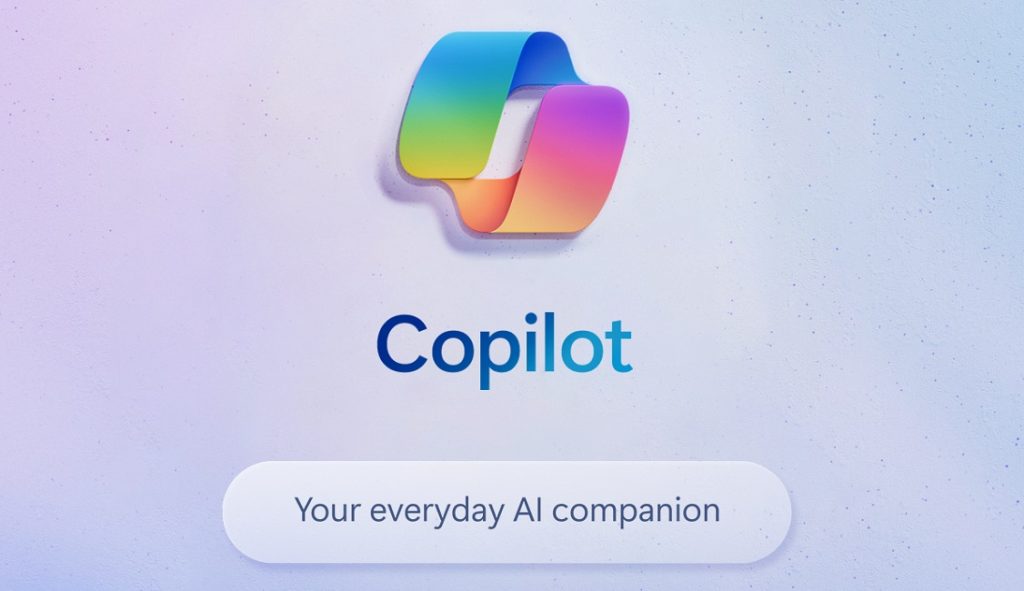 Microsoft Copilot Takes Flight: AI-Powered Productivity Soars with New Features
Microsoft Copilot Takes Flight: AI-Powered Productivity Soars with New Features
Microsoft Copilot, the AI-powered productivity suite, has received a significant update this week, introducing a range of powerful new features that promise to transform how we work and interact with technology. As one of OpenAI’s biggest investors, Microsoft is clearly leveraging this partnership to bring cutting-edge AI capabilities to its users.
The Rise of Voice and Vision
One of the most anticipated additions is Copilot Voice, an advanced voice mode similar to Gemini’s live voice mode. This feature allows users to interact with Copilot conversationally, making it a truly interactive and collaborative brainstorming partner. The intuitive nature of voice interaction combined with AI assistance has the potential to revolutionize workflows and unlock new levels of productivity.
In addition to voice, Copilot is gaining Copilot Vision, a multimodal capability that allows the AI to “see” and interpret visual information. This opens up exciting possibilities for real-time image analysis, visual search, and enhanced accessibility features.
Deeper Thinking and Generative Search
Microsoft is also integrating OpenAI’s advanced language model, Orion, into Copilot. This enables “Think Deeper,” a feature that allows Copilot to analyze information more comprehensively before responding, similar to OpenAI’s latest advancements. This deeper level of processing results in more accurate, insightful, and contextually relevant responses.
Furthermore, generative search is being integrated into Bing, Microsoft’s search engine. This technology allows Bing to understand search queries on a deeper level, review millions of sources, and dynamically generate comprehensive search results. This move positions Bing as a strong contender in the rapidly evolving landscape of generative search, currently dominated by Perplexity.
A Strategic Rollout
The “Think Deeper” feature will initially be available in a limited release for the “Five Eyes” countries: Australia, Canada, New Zealand, the United Kingdom, and the United States. However, advanced voice, generative search, and Copilot Vision will be available to a wider audience.
The Future of Copilot
This latest update marks a significant step forward for Microsoft Copilot, demonstrating its potential to become an indispensable AI-powered assistant for both personal and professional use. By combining voice interaction, visual understanding, and advanced language processing, Copilot is poised to redefine how we interact with technology and accomplish our goals.
It will be interesting to see how Microsoft continues to develop Copilot in the future, and whether it will further leverage its partnership with OpenAI or forge its own path in the AI landscape.
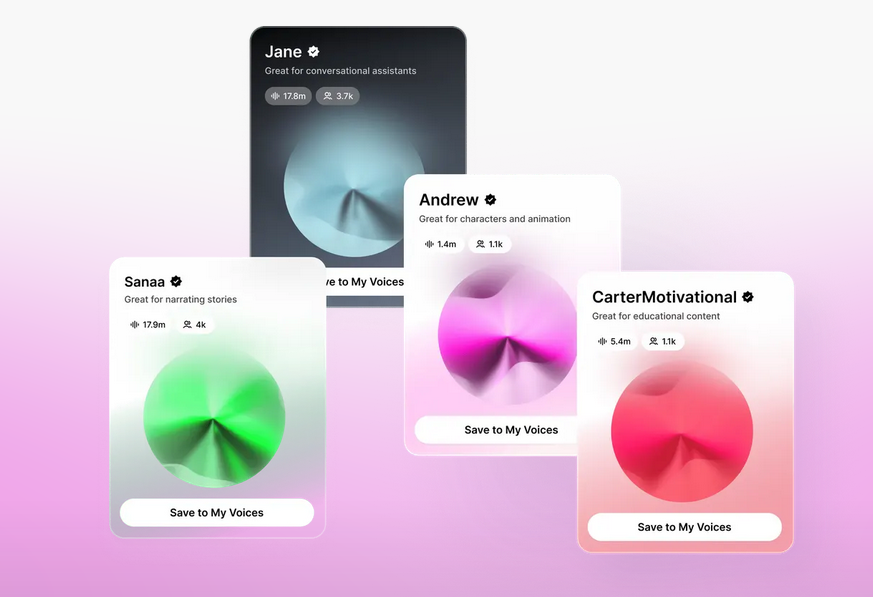 ElevenLabs: Revolutionizing Audio with AI-Powered Voices and a New Platform for Authors
ElevenLabs: Revolutionizing Audio with AI-Powered Voices and a New Platform for Authors
ElevenLabs, a pioneering company in AI-driven audio processing, is making waves with its innovative approach to voice synthesis and content creation. The company has been at the forefront of allowing users to generate realistic and expressive speech using AI, enabling anyone to create audio content in their own voice or even replicate the voices of others.
From Voice Cloning to a Comprehensive Audio Platform
ElevenLabs initially gained recognition for its impressive voice cloning technology. By analyzing a short audio sample, the AI can generate a synthetic voice that accurately captures the nuances and style of the original speaker. This has applications in various fields, from personalized voice assistants to creating realistic voiceovers for videos and games.
Now, ElevenLabs is expanding its reach with a significant update to its ElevenReader app, available on both Android and iOS. This app provides a library of AI-narrated content, including books and articles. The update introduces a game-changing feature for independent authors: the ability to directly publish their work to the app and instantly transform it into audio content using ElevenLabs’ AI voices.
Empowering Authors and Challenging Audible
This new feature positions ElevenLabs as a potential competitor to Amazon’s Audible, the dominant player in the audiobook market. By providing independent authors with a platform to publish and distribute their work in audio format, ElevenLabs is democratizing access to audiobook creation and potentially disrupting the traditional publishing landscape.
- Direct Publishing for Independent Authors: Authors can seamlessly publish their books directly to the app.
- AI-Powered Narration: The app leverages ElevenLabs’ advanced voice synthesis technology to generate high-quality audio narrations.
- Expanded Content Library: Includes a growing collection of AI-narrated books, articles, and even blog posts.
- Celebrity Voices: Offers the option to have books narrated by AI-generated celebrity voices.
The Future of Audio Content Creation
ElevenLabs’ commitment to innovation and its focus on empowering creators with AI-driven tools is transforming the audio landscape. The ElevenReader update not only provides a new platform for independent authors but also challenges the established norms of audiobook production and distribution.
With its continued advancements in voice synthesis and its expanding ecosystem of audio content, ElevenLabs is poised to play a pivotal role in shaping the future of how we create, consume, and interact with audio.
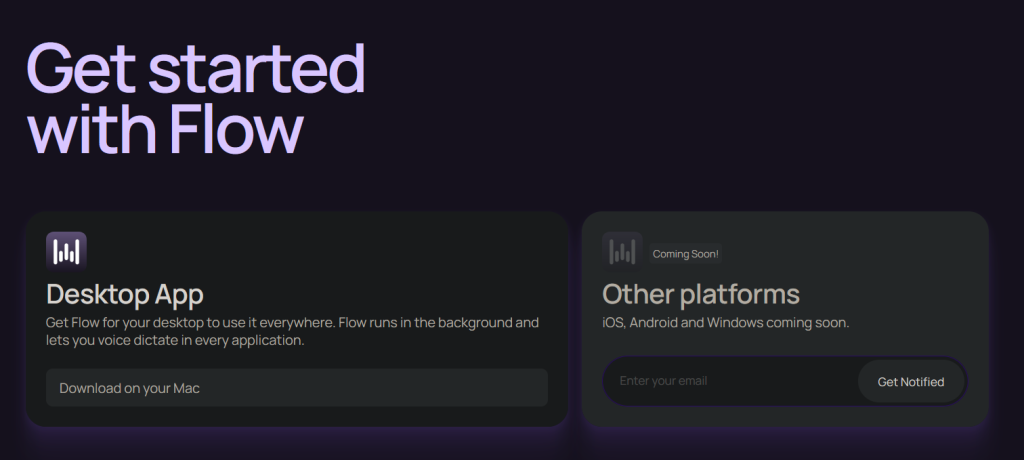 WisprFlow: Redefining Voice Dictation with AI-Powered Formatting
WisprFlow: Redefining Voice Dictation with AI-Powered Formatting
A new product has emerged this week, capturing the attention of writers and productivity enthusiasts alike: WisprFlow. This innovative voice dictation app, currently available for Apple users, goes beyond simple transcription to offer intelligent formatting and content generation.
More Than Just Transcription
WisprFlow sets itself apart by understanding the context and intent behind your words. Instead of merely transcribing every utterance verbatim, it intelligently formats the text, transforming spoken language into polished, usable content. This is a significant departure from traditional dictation software, which often requires extensive editing and reformatting.
The Power of Large Language Models
The application’s capabilities are rooted in the advancements of large language models (LLMs). These models enable WisprFlow to comprehend the nuances of human language, identify key phrases, and structure the text accordingly. This results in a more efficient and intuitive writing experience, allowing users to focus on their ideas rather than the mechanics of writing.
A Unique Value Proposition
WisprFlow’s ability to anticipate user needs and generate formatted text represents a unique value proposition in the market. While the product’s long-term success remains to be seen, its potential to revolutionize voice dictation is undeniable.
- Intelligent Formatting: Transforms spoken language into structured, usable text.
- Contextual Understanding: Leverages LLMs to comprehend user intent and generate relevant content.
- Efficient Workflow: Streamlines the writing process, allowing users to focus on their ideas.
- Cross-Platform Compatibility: Coming soon to iOS, Android, and Windows platforms.
Looking Ahead
WisprFlow is a promising tool for anyone who relies on writing, from students and professionals to creative writers and journalists. Its ability to bridge the gap between spoken and written language has the potential to redefine how we approach content creation. As the product evolves and expands to new platforms, it will be interesting to observe its impact on productivity and accessibility in the digital age.
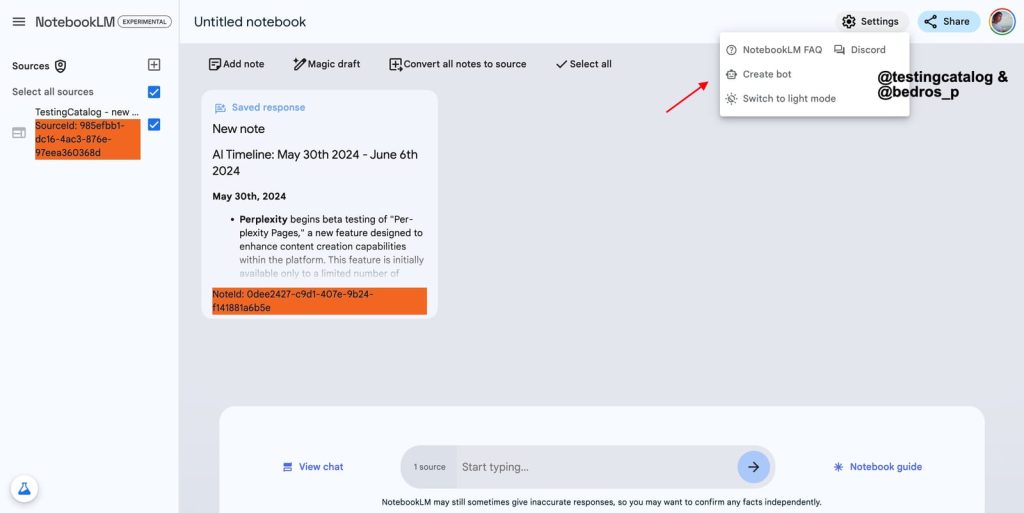 Google NotebookLM: Revolutionizing Research with AI-Powered Chatbots
Google NotebookLM: Revolutionizing Research with AI-Powered Chatbots
Google has been on a roll lately, releasing a series of impressive updates and products that leverage the power of artificial intelligence. Among these, NotebookLM stands out as a game-changer, garnering significant praise for its innovative approach to research and knowledge management.
From AI-Generated Podcasts to Contextual Chatbots
NotebookLM initially made headlines with its ability to transform articles and notes into AI-generated podcasts. This feature, which features two AI hosts discussing the summarized content, showcased the potential of NotebookLM to revolutionize content consumption and knowledge sharing.
Now, NotebookLM is poised to take another leap forward with the introduction of contextual chatbots. This upcoming feature will allow users to create custom chatbots within each notebook, providing a personalized and interactive way to explore and engage with their research material.
A Productivity Boost for Researchers
The NotebookLM team confirmed this development on Twitter, revealing that contextual chatbots are already being used internally at Google with significant success. These chatbots are seen as a major productivity boost, enabling users to quickly and efficiently access relevant information within their notebooks.
By seamlessly integrating large language models into a user-friendly platform, NotebookLM is unlocking new levels of productivity and insight. Google’s commitment to innovation in this space is evident, and we can expect to see even more exciting developments from NotebookLM in the future.
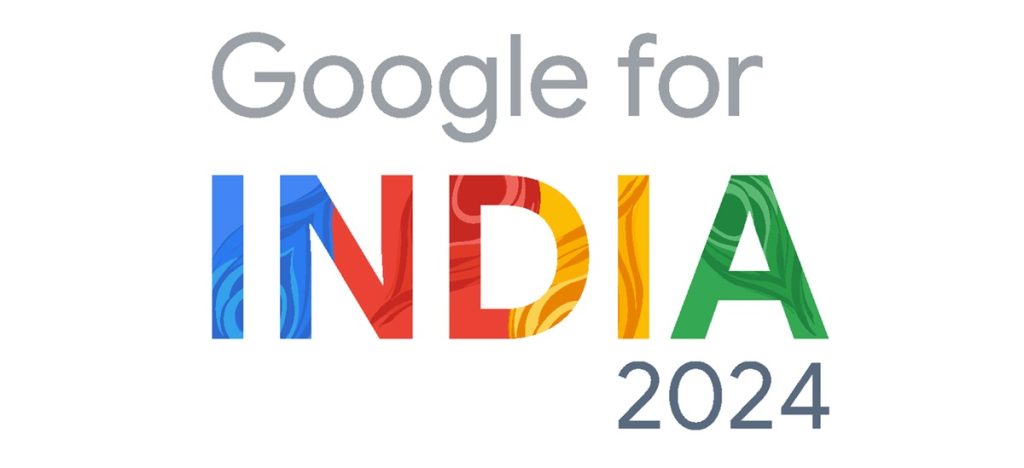 Google Expands AI Initiatives in India with Gemini Live and Enhanced Features
Google Expands AI Initiatives in India with Gemini Live and Enhanced Features
In addition to its global AI advancements, Google has also unveiled a series of India-specific updates, demonstrating its commitment to making AI accessible and relevant to diverse user bases.
Gemini Live in Indian Languages
A key announcement is the expansion of Gemini Live, Google’s conversational AI service, to Indian languages. Starting with Hindi, Gemini Live will soon be available in eight more Indian languages, including Bengali, Gujarati, Kannada, Malayalam, Marathi, Telugu, Tamil, and Urdu. This move significantly expands the reach of Google’s AI capabilities, allowing millions of Indian users to interact with Gemini in their native languages.
AI-Powered Enhancements for Search and Maps
Google also announced the introduction of video-based search, enabling users to search using visual content. This innovative feature opens up new possibilities for information discovery and retrieval.
Furthermore, Google Maps will receive AI-powered enhancements, providing users with more intelligent and personalized navigation experiences. While specific details about these enhancements are yet to be revealed, they are expected to leverage AI for improved traffic prediction, route optimization, and location-based recommendations.
AI for Every Indian
These India-focused updates fall under Google’s “AI for Every Indian” initiative, which aims to make AI accessible and beneficial to all citizens of India. This initiative reflects Google’s commitment to inclusivity and its recognition of the transformative potential of AI in addressing local needs and challenges.
Google’s Expanding AI Footprint
With these latest announcements, Google continues to demonstrate its leadership in the AI space. The company’s focus on expanding language support, enhancing core products with AI, and developing India-centric solutions highlights its commitment to both global innovation and local relevance. As Google continues to push the boundaries of AI, we can expect to see even more impactful and transformative applications emerge in the future.
The AI revolution is just getting started. Don’t get left behind. Join us next week as we delve deeper into these groundbreaking innovations and explore the future of human-computer collaboration.
